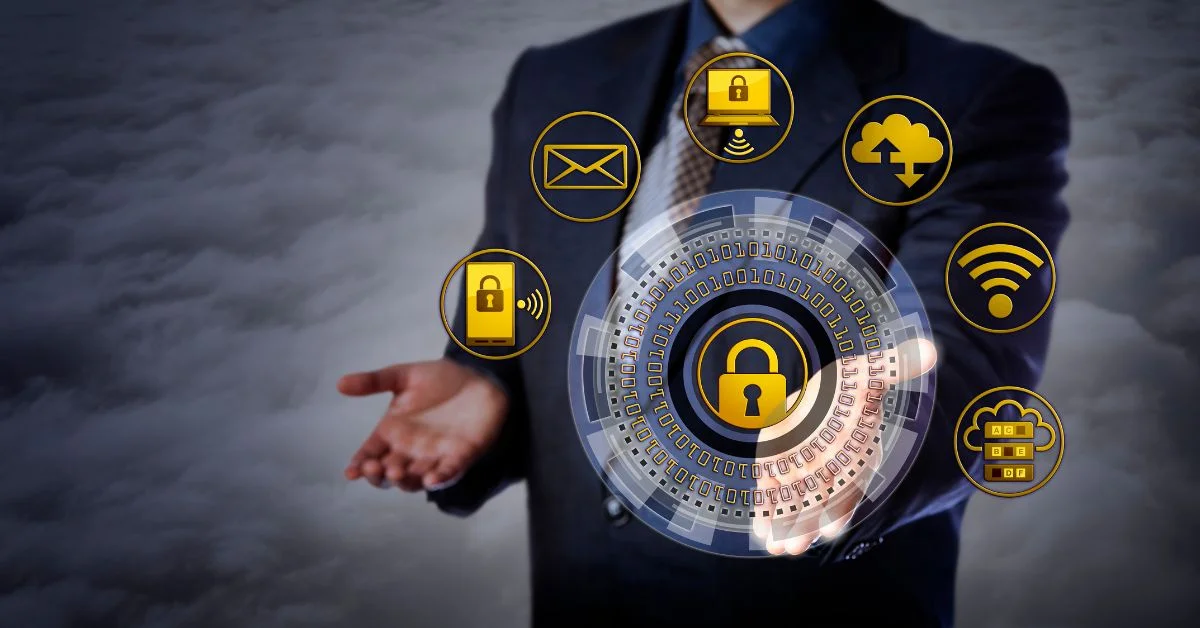In the evolving landscape of cybersecurity, organisations face an increasing number of threats targeting their digital infrastructures. From sophisticated malware to phishing attacks and data breaches, the challenge of staying ahead of cybercriminals has never been more pressing. As companies strive to protect their assets and sensitive data, one of the most powerful tools available to them is artificial intelligence (AI). AI-driven cybersecurity marketing tools are playing a pivotal role in shaping the future of digital security by providing smarter, faster, and more effective ways to both defend against cyber threats and market cybersecurity solutions.
What are AI Cybersecurity Marketing Tools?
AI-powered cybersecurity marketing tools combine machine learning, natural language processing (NLP), and other advanced AI techniques to help businesses in the cybersecurity industry to improve their marketing efforts. These tools enable cybersecurity companies to more effectively reach their target audience, optimise their marketing strategies, and ultimately increase customer engagement, all while improving the overall security posture of their own operations.
AI tools are particularly adept at analysing vast amounts of data, understanding user behaviour, predicting threats, and automating repetitive tasks. For cybersecurity marketers, this means they can automate customer outreach, personalise campaigns, and provide in-depth insights that help organisations fine-tune their messaging and reach potential customers with greater precision.
Key Benefits of AI Cybersecurity Marketing Tools
1. Personalization at Scale
AI marketing tools can segment and analyse customer data to create hyper-targeted campaigns. By using machine learning algorithms, these tools can understand customer preferences, behaviours, and past interactions. With this knowledge, cybersecurity companies can craft personalised marketing messages tailored to specific needs, increasing the likelihood of conversions. For example, a business selling enterprise-grade firewall solutions can use AI to identify and target high-value prospects based on their size, industry, and past cybersecurity issues.
2. Predictive Analytics
AI enables predictive analytics by analysing patterns in historical data to forecast future trends. In the realm of cybersecurity marketing, this can translate into predicting which prospects are most likely to purchase specific security solutions based on their current risk profile. With predictive insights, companies can prioritise leads that have a higher chance of conversion, leading to more efficient resource allocation and better ROI on marketing campaigns.
3. Real-Time Threat Monitoring for Marketing
AI-driven cybersecurity tools are also capable of continuously monitoring online threats and emerging vulnerabilities. For cybersecurity marketers, this real-time monitoring is invaluable for staying ahead of the latest developments in the threat landscape. By leveraging threat intelligence, cybersecurity marketing teams can adjust their messaging to reflect the current concerns of businesses and offer tailored solutions to help mitigate those specific risks.
For example, if a new ransomware attack starts making headlines, AI tools can quickly identify businesses that are most likely to be impacted, allowing marketers to promote their ransomware protection solutions at the right time. This proactive approach ensures that marketing messages are always relevant and timely.
4. Chatbots and Conversational AI
Incorporating AI-powered chatbots into marketing strategies can significantly improve customer engagement. Chatbots, powered by natural language processing, can handle inquiries in real-time, qualify leads, and provide useful resources to potential customers—24/7. For example, a chatbot could interact with website visitors, providing them with valuable information on the latest cybersecurity threats or offering them a demo of a security solution based on their specific needs.
These conversational AI tools can also engage in follow-up communication, schedule demos, and even close sales in some instances, all without human intervention. This leads to a more efficient and effective marketing process while providing a seamless customer experience.
5. Automated Content Generation
AI tools can streamline the content creation process, generating blog posts, whitepapers, email campaigns, and social media posts at scale. These AI tools leverage NLP to understand context, audience preferences, and the latest trends in cybersecurity. For example, AI can generate content about the latest data breach incident, its potential impact, and how specific cybersecurity solutions can prevent similar attacks.
Not only does this save time for marketing teams, but it also ensures a steady flow of relevant and informative content that attracts leads, builds trust, and positions the company as a thought leader in the cybersecurity space.
How AI Cybersecurity Marketing Tools are Shaping the Future of Cybersecurity
1. Improved Customer Education
One of the significant challenges in cybersecurity marketing is educating potential customers about the importance of digital security and the risks they face. AI-powered tools can help craft educational content that is not only personalised but also adaptive to the user’s knowledge level. Whether they are a small business owner or an IT security professional, AI tools can customise the learning experience to ensure customers understand their unique cybersecurity needs.
2. Faster Response Times
In a world where cyber threats evolve rapidly, businesses need to respond quickly. AI-driven marketing tools enable organisations to react to emerging threats much faster, tailoring their marketing and communication strategies in real time. Whether it’s an update about a new vulnerability, a change in security protocols, or an emerging attack vector, AI can automatically adjust campaigns and messaging to align with the latest developments in the cybersecurity space.
3. Enhanced Data-Driven Insights
AI tools are equipped with the ability to process and analyse vast amounts of data from multiple sources, uncovering patterns and trends that would be difficult for human marketers to identify. By using these insights, companies can refine their strategies to better understand customer behaviour, preferences, and pain points. This leads to more effective messaging, higher customer satisfaction, and ultimately more sales.
4. Cost Efficiency
AI automation reduces the need for manual work, cuts down on human error, and improves resource allocation. For cybersecurity companies, this means that marketing teams can focus on high-value tasks such as strategy development, relationship building, and content creation, while leaving repetitive and data-heavy tasks like lead generation, customer segmentation, and reporting to AI tools.
Future Outlook
As cybersecurity threats continue to grow in sophistication and volume, the role of AI in cybersecurity marketing will only expand. The increasing reliance on AI will drive more personalised and efficient marketing, ultimately helping companies protect their customers from the latest cyber threats. However, as AI becomes more integrated into marketing and security strategies, businesses must also ensure that their AI tools are secure, transparent, and ethical, especially when dealing with sensitive data.
AI cybersecurity marketing tool are here to stay, and as the market grows, businesses that adopt these technologies will be better equipped to stay ahead of the competition and protect their customers in an increasingly digital world.
In summary, AI-driven cybersecurity marketing tools are revolutionising how companies in the cybersecurity industry approach customer engagement, marketing strategy, and threat management. From personalised content and predictive analytics to real-time threat monitoring and automated lead generation, these tools empower cybersecurity businesses to optimise their marketing efforts while strengthening their own security frameworks. As AI technology continues to evolve, its role in cybersecurity marketing will only become more indispensable, helping businesses stay agile, efficient, and ahead of emerging cyber threats.
If you find this article helpful, click here for more.









